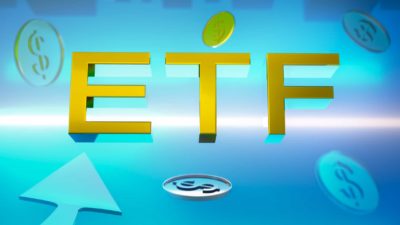The PPK Group Limited (ASX: PPK) share price is having a bumper day on Tuesday. This comes after the technology and mining equipment company announced a technological breakthrough.
At the time of writing, PPK Group shares are fetching $12.10 apiece, up 8.52% for the day. In earlier trade, the company's shares reached a new record high of $12.90 before partially retreating.
What's pushing PPK Group shares higher?
Investors are fighting to get a hold of PPK shares after the company announced an update regarding a revolutionary lithium-sulphur battery.
According to its release, PPK Group's 48%-owned subsidiary, Li-S Energy has developed a new lithium-sulphur battery using boron nitride nanotubes (BNNT) technology. The scientific discovery was achieved along with its partner and fellow shareholder, Deakin University.
Previously, PPK Group highlighted the significant potential of BNNT however, the material could only be produced in small quantities. To help solve this problem, BNNT Technology, a 50% subsidiary of PPK Group used breakthrough Deakin University technology.
Since then, BNNT Technology yielded 5 kilos of BNNT across a 5-day period from a single production module. The result achieved above 95% purity. This signifies a strong advance in technology as just 2 years ago, only 1 kilo of BNNT per year could be produced.
PPK stated that lithium sulphur (Li-S) batteries are next-generation batteries with a significantly higher energy capacity than existing lithium-ion batteries. However, they have a severe limitation with lifetime performance, typically failing over very few charge and discharge cycles.
In response to this, Deakin's Nanotechnology research team has developed (BNNT) to improve the performance of Li-S batteries. So far, the material retains a high-energy capacity and avoids significant degradation on more than 450 charge/discharge cycles. The research team is looking at further increasing the product's cycle capacity.
Li-S has now lodged two key patents covering the function of BNNT and the technology within. According to PPK, covered by the new patents, Li-S has the commercial opportunity to create large-scale manufacturing of lithium-sulphur batteries.
Over the coming years, Li-S plans to finalise the design and scale-up production of the new batteries. Such applications include charging an electric vehicle after 1,000 kilometres of driving, off-grid solar/battery street lighting and more.
Li-S Energy and BNNT Technology are both joint ventures between Deakin and PPK Group. Li-S Energy recently completed a capital raise of $20 million to support the ongoing development of Deakin's technology.
Management commentary
PPK executive chair, Robin Levison commented:
For me personally, this is a really exciting moment for PPK. What we see here is a real-life tangible application of BNNT to facilitate a genuine technological breakthrough with global commercial potential. This new type of lithium sulphur battery demonstrates how the unique attributes of this truly amazing product can be realised in practice.
Li-S CEO Dr Lee Finniear went on to add:
We have achieved a significant innovation breakthrough with our Li-S battery technology at a time when the world is demanding better batteries and more efficient energy storage devices. The commercialisation journey for Li-S Energy Limited has begun and is on track to showcase this Australian company as a recognised leader in this exciting industry.
Lead Deakin researchers Alfred Deakin Professor Ying (Ian) Chen and Dr Baozhi Yu noted:
These results are the culmination of 10 years of research into the development of lithium sulphur batteries and how that is influenced by advanced nanomaterials. The belief and investment in the research program from Li-S Energy have now enabled us to bring our research toward a commercial reality.
PPK Group share price review
Over the last 12 months, the PPK Group share price jumped by more than 200%, with year-to-date performance above 100%.
Based on valuation grounds, PPK Group commands a market capitalisation of roughly $1 billion, with approximately 89 million shares outstanding.








